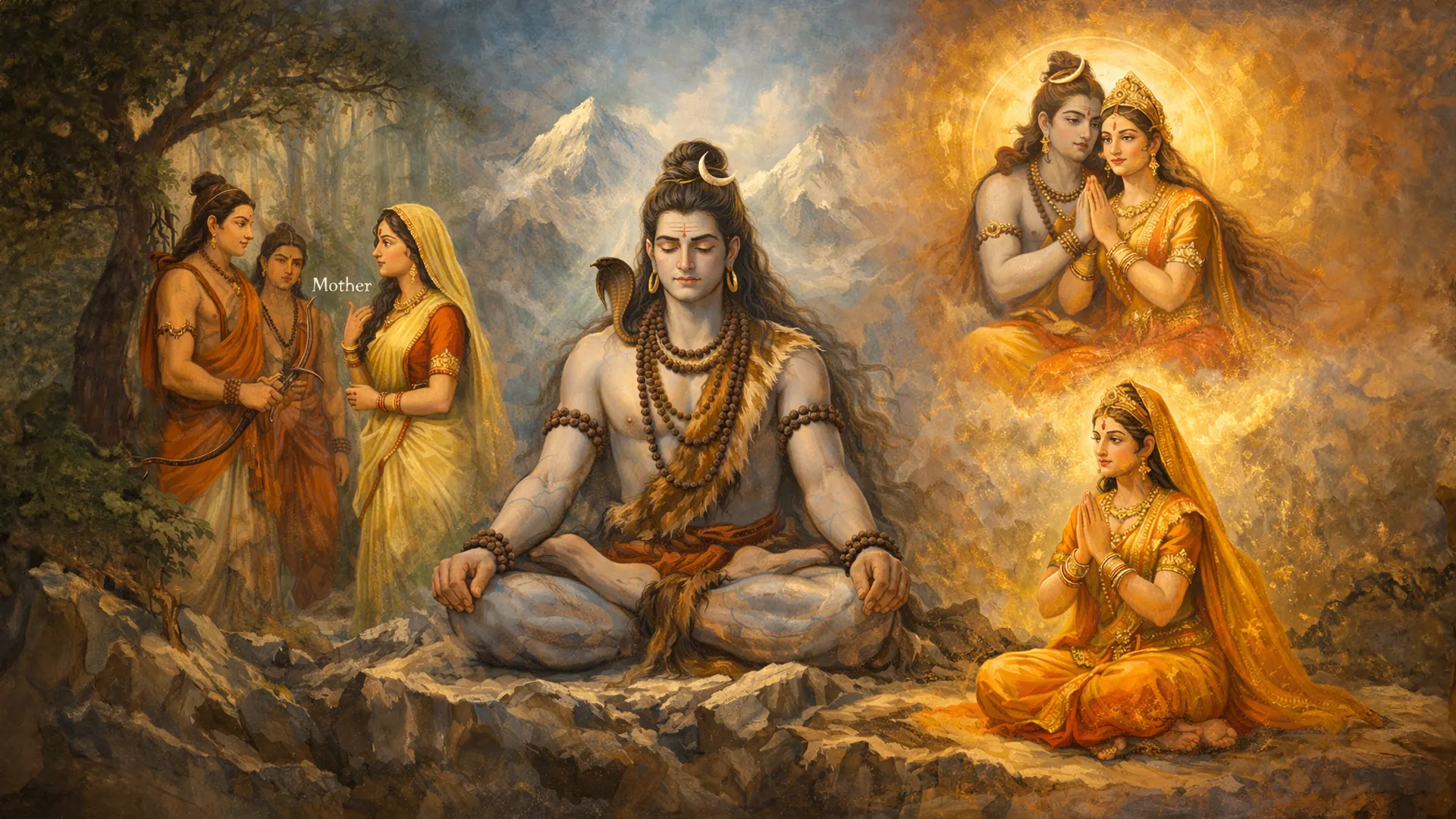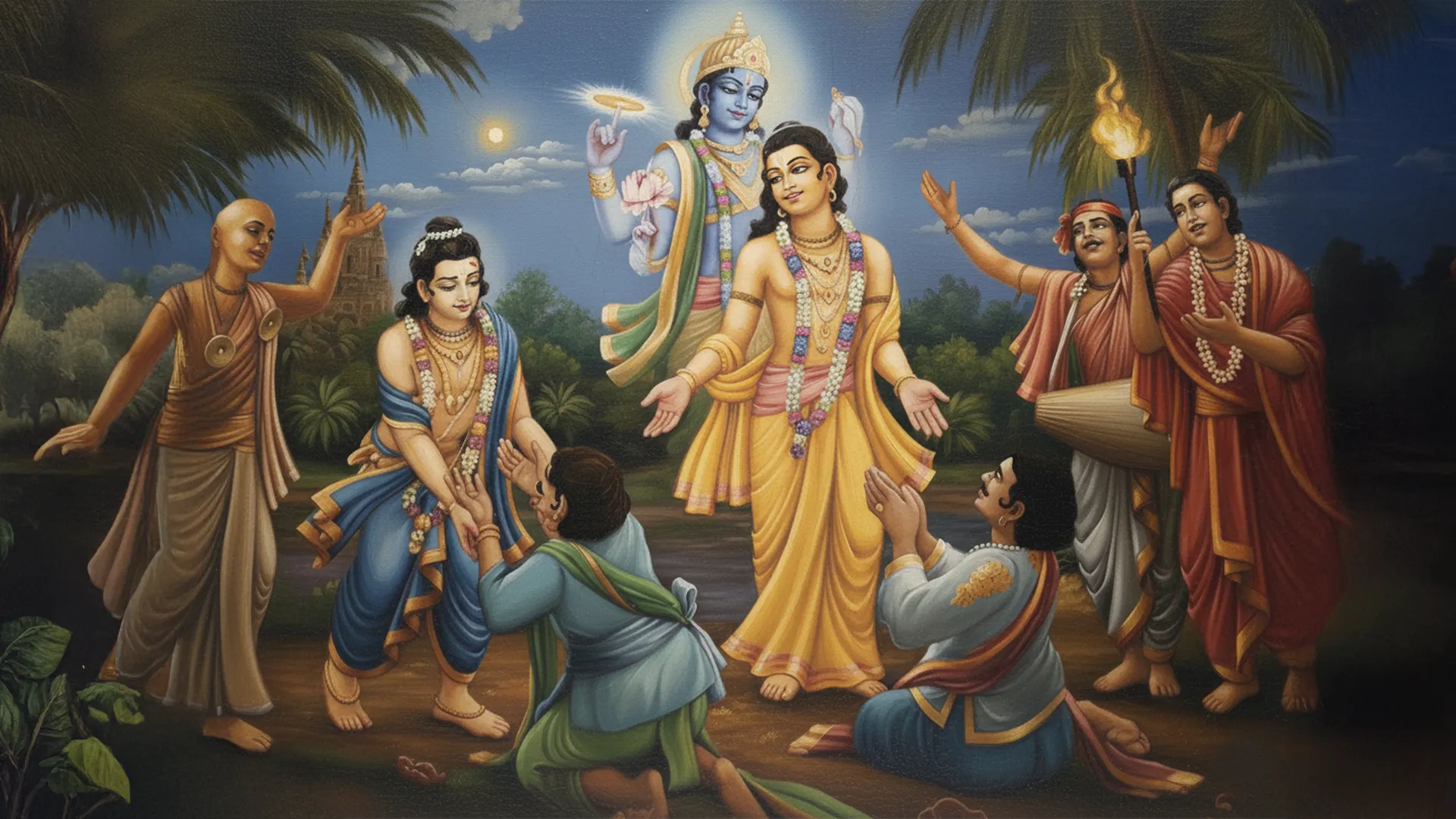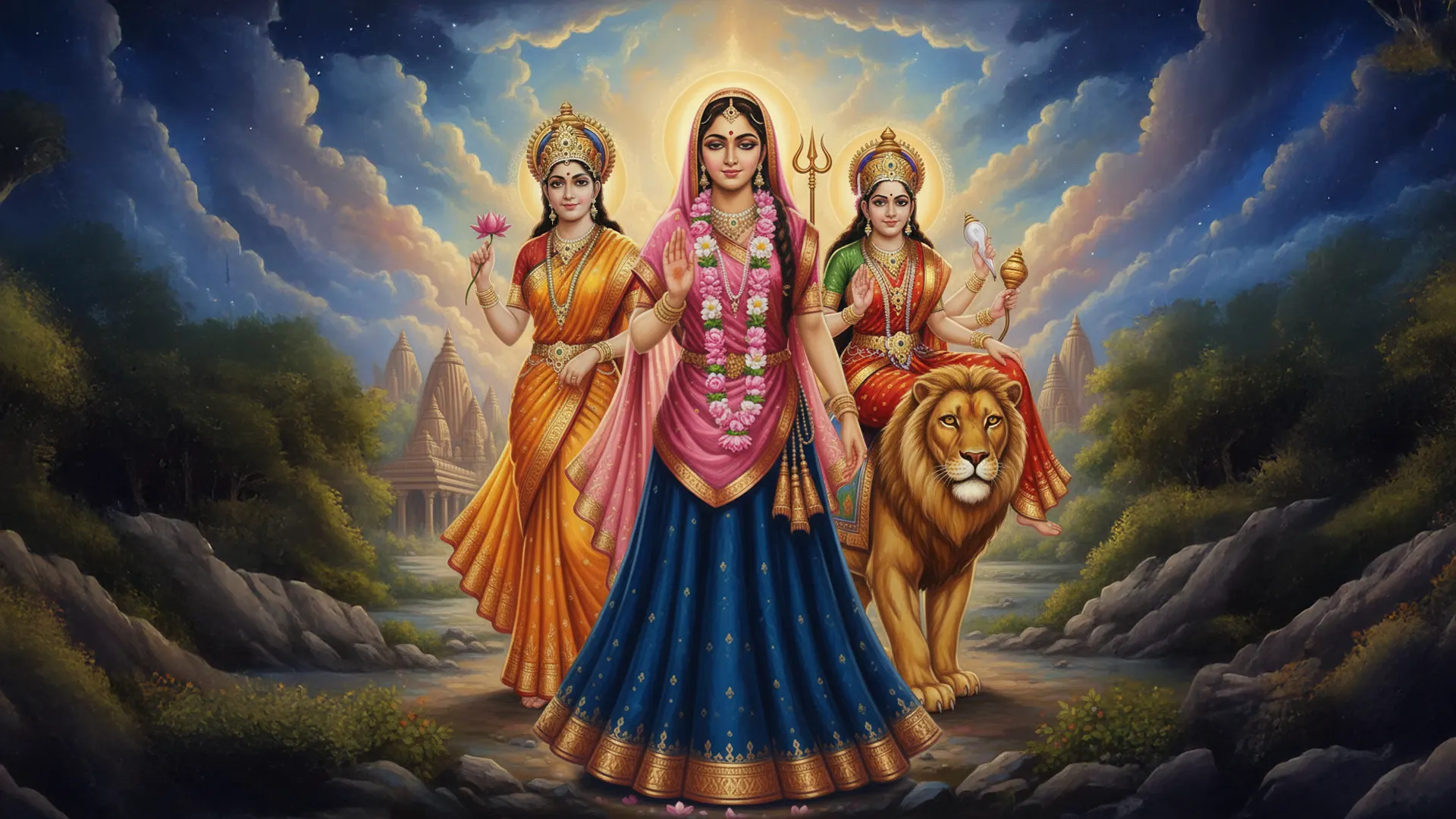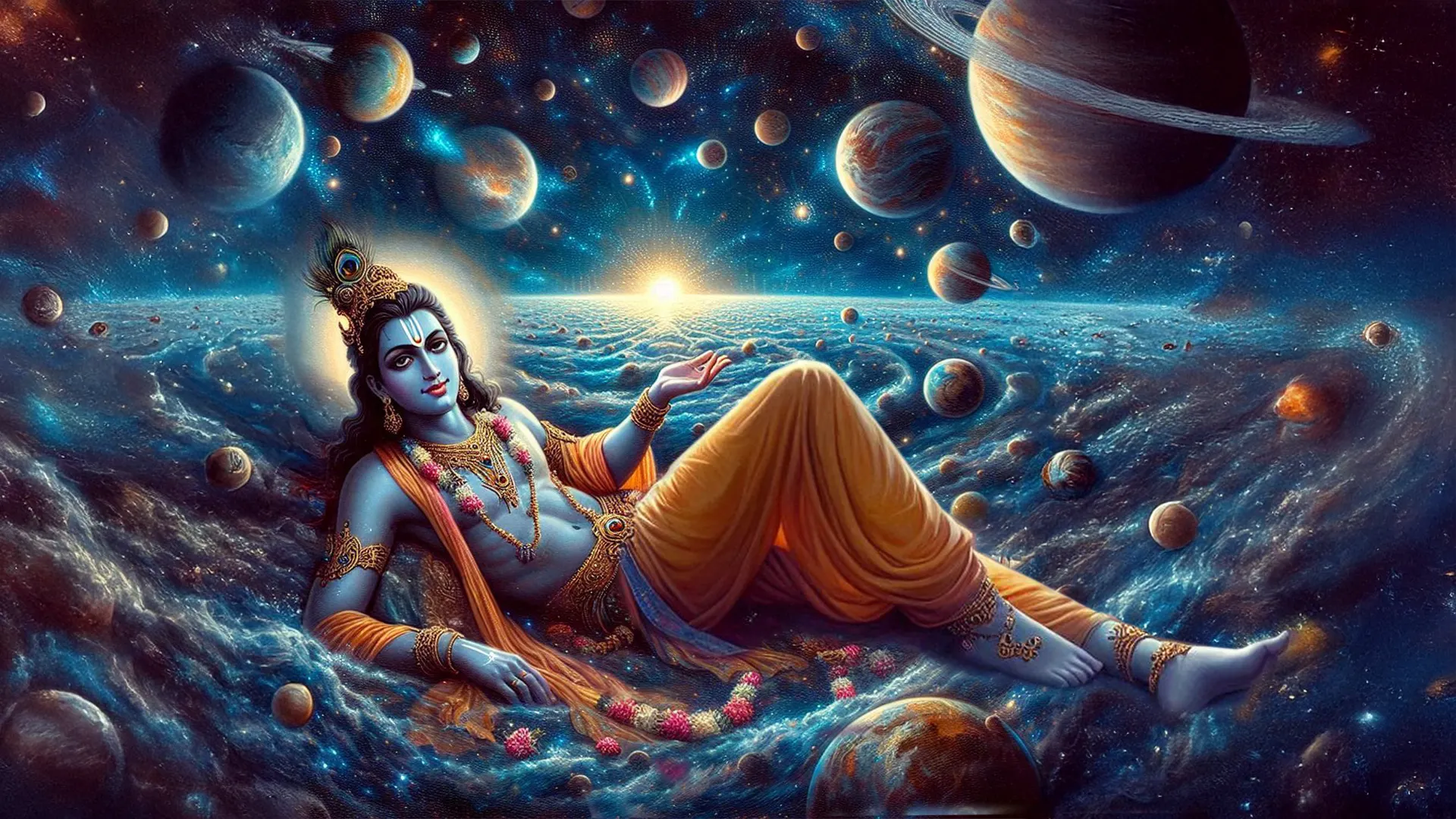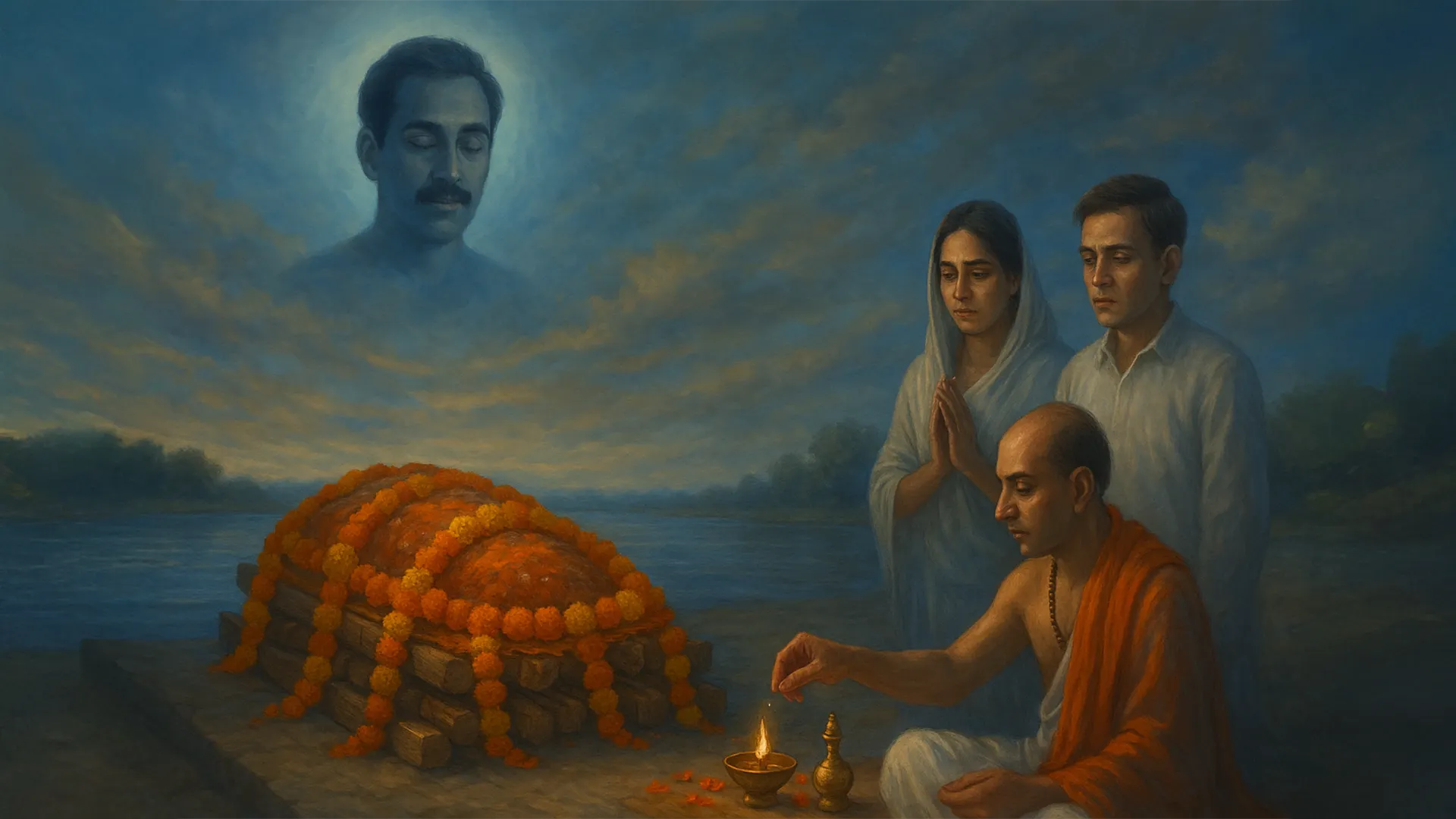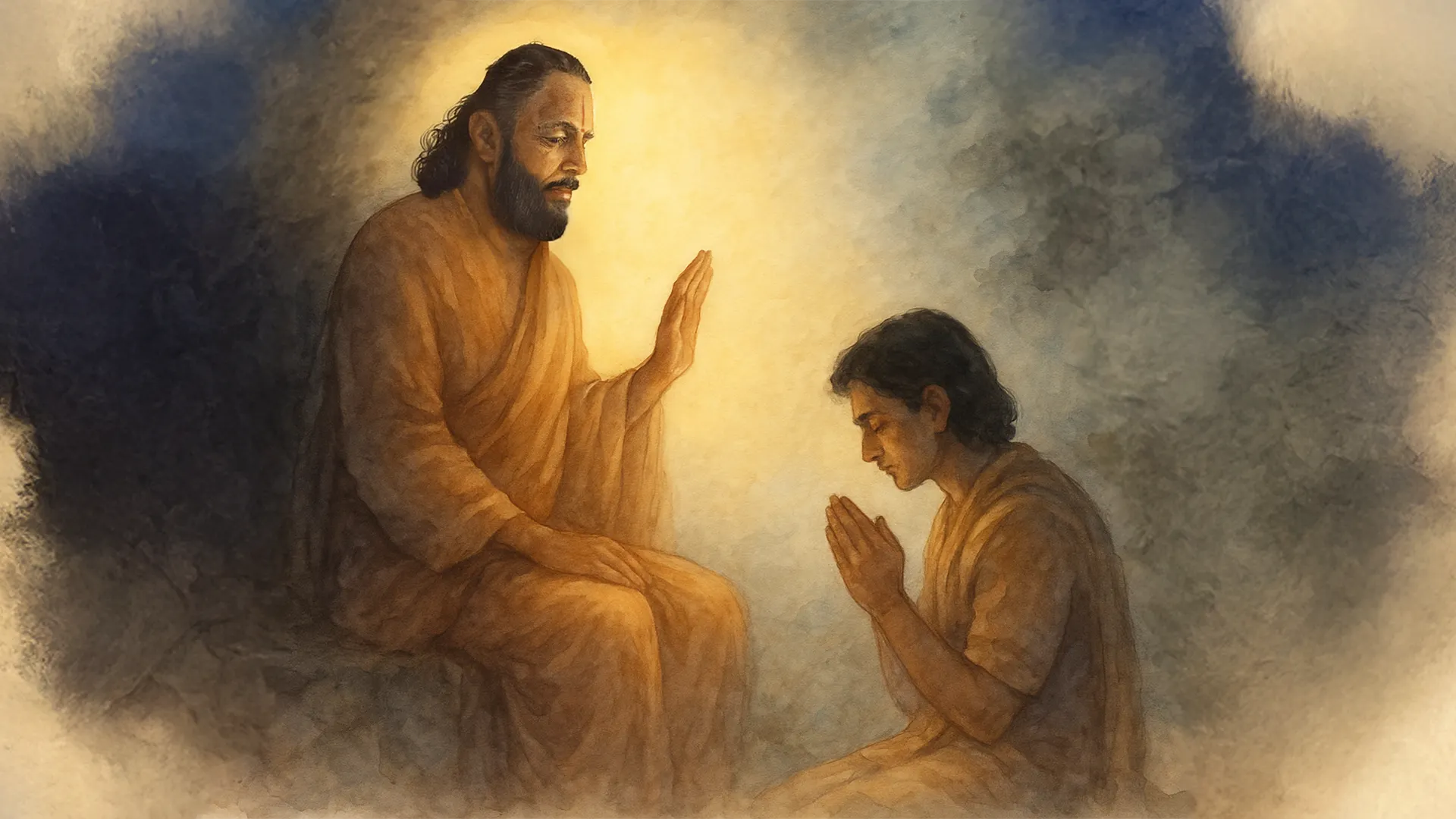The first two parts of this series dealt with various causes of suffering in the world and brought forth justifications as to why God let men suffer when He could have taken away all their miseries. In this part, we shall explore the allegorical story of King Parikshit and his encounter with Kali (personification of kaliyuga) and the teachings of King Rishabha from the Srimad Bhagavatam to understand the underlying reason for man's suffering in Kali Yuga. We shall perceive through these stories why God created Kali and let it pollute human minds with evil and suffering.
The root cause of man's suffering in Kali Yuga, as it emerges from the episodes of the two kings, Parikshit and Rishabha, is ego: the pitfall of I and mine. It is important to note at this point that both Parikshit and Rishabha were born with the intervention of the Lord. Lord Krishna protected Parikshit when he was in his mother Uttara'sUttara's womb, and Rishabha was the Lord Himself who had taken avatar to show to the world in Kali-yuga that a man can be a king and a grihastha and yet live like a sanyasi and attain salvation.
King Parikshit's Pursuit of Dharma and Redemption
Parikshit, the grandson of Arjun, was the king of Hastinapur who followed the path of dharma. One day, he saw a man of low birth beating a lame bull with a stick while the cow watched helplessly. With great concern, Parikshit drew his arrow to stop the cruel act. With tearful eyes, the bull told him about the moral and spiritual degradation of man governed by nothing but ego. The bull did not reveal the name of the sinner but talked about the lack of power of even the gods to influence men's actions. Some men, he said, are atheists who believe that they are the masters of their fate.
Parikshit realized that the cow was Mother Earth, and the bull was Dharma himself. The four legs of the bull represented Penance, Cleanliness, Compassion, and Truth. He understood that in Kali Yuga, only the last pillar of dharma, truth, remained while all the others had been destroyed.
Later, Kali tricked Parikshit and made his home on the king's golden throne. Parikshit, overcome with ego and anger, committed a sin against sage Shamika, who was meditating. Realizing his mistake, he left his kingdom to meditate and seek salvation. Shukadev muni met him and narrated the Bhagwat Mahapuran for seven days, guiding him to meditate upon God and achieve salvation.
King Rishabha's Wisdom: Detachment, Bhakti, and the Purpose of Life
King Rishabha, an avatar of the Lord Himself, delivered a discourse to his sons about the purpose of life. He gave them various lessons on detachment, equanimity, and devotion. He said that the root causes of attachment to worldly objects like homeland and family are Ahankara and Mamakara: ''I'' and ''mine''. Attachment follows from ego and the deluded sense of ownership. He cautions his children against such ego and teaches them that the only worthwhile pursuit is that of the knowledge of Brahman, which can be acquired through surrender to the Lord. He emphasizes that in order to surrender, one must engage in listening (Shravanam), contemplation (Mananam), and deep meditation (Nidhidhyaasanam) of the Lord.
According to Rishabha's teachings, only bhakti can drive away Kali. However, Kali is needed so as to bring suffering upon man and divert his thoughts toward God. Kali is, therefore, God's instrument for helping man become sanmukh. Liberation from the cycle of birth and death may be achieved only by turning our minds toward God.
To conclude, let us ponder upon Mother Kunti's imploring speech to her beloved Lord before He left for Dwarka, "Please, Krishna, there is only one boon I want to ask of You, and that is: there should be misfortune after misfortune visiting us. That, and only that, will make You be with us all the time."



